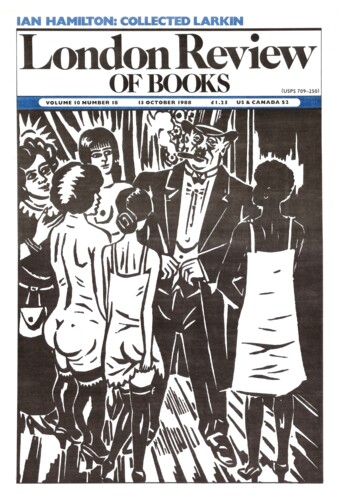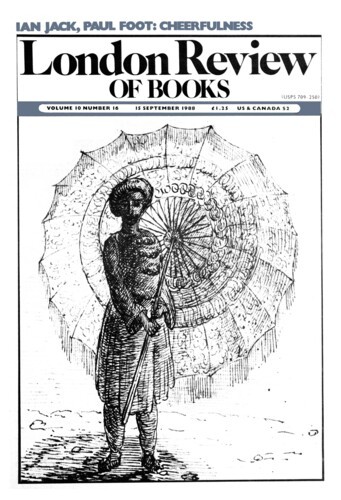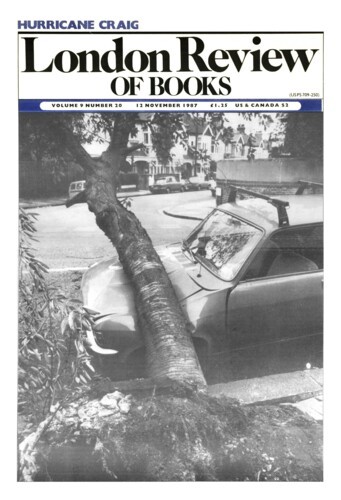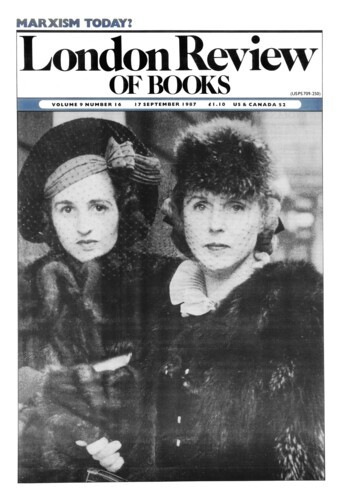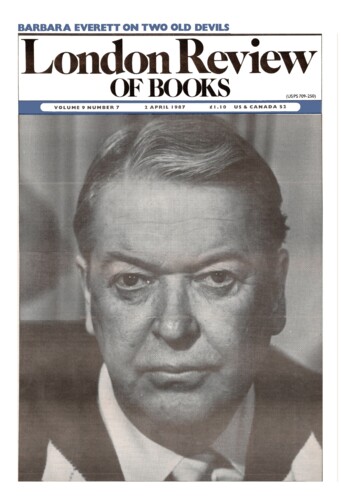Megawoman
Penelope Fitzgerald, 13 October 1988
Rebecca West said that Olive Schreiner was a ‘geographical fact’. Others were reminded of a natural force, admired and dreaded, unchecked by illness, war or poverty, something new coming out of Africa. To fit her into the history of South Africa, of literature or of women’s movements is an exhausting business. ‘The day will never come when I am in the stream,’ she said. ‘Something in my nature prevents it I suppose.’
